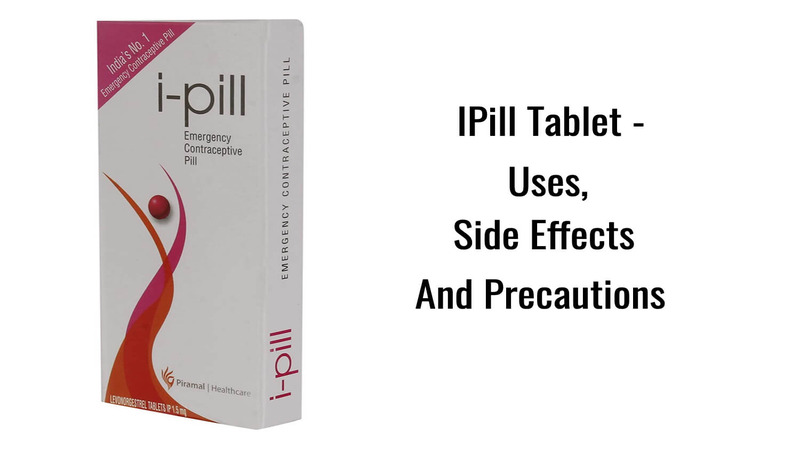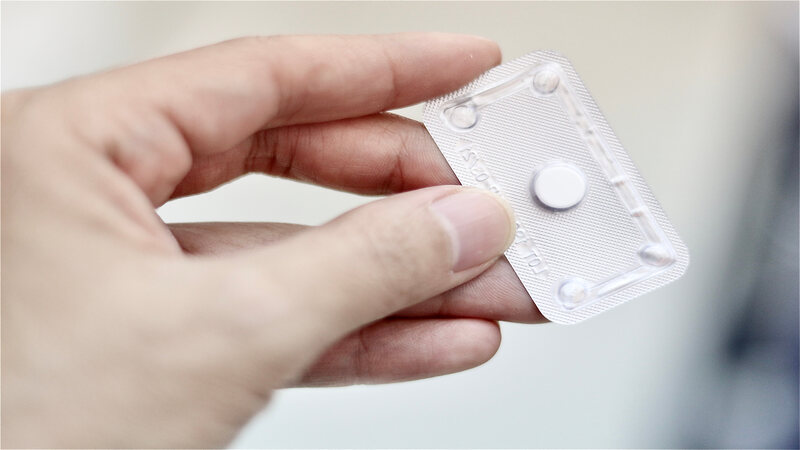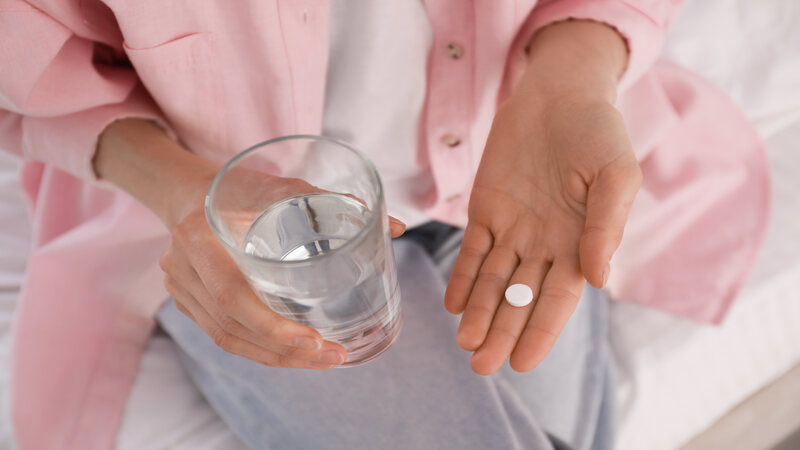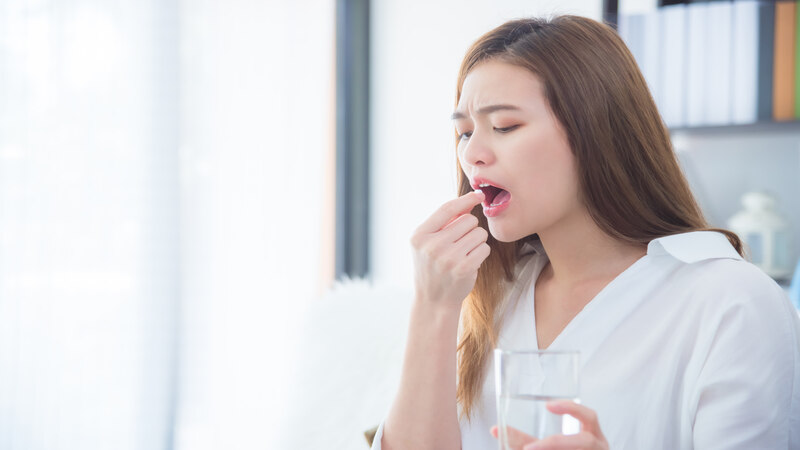
Emergency contraception is becoming popular as the most effective way to prevent pregnancy after an episode of unprotected, unsafe sex. The widely popular ‘morning-after pills’ have eased the stress on the generation that is exploring their sexuality and are a blessing for women who have either faced an ‘oops’ moment in the bedroom when the contraceptive being used has failed, or have been in a situation of forced sex. One such morning-after pill is the I-Pill tablet.
An unwanted, unplanned pregnancy can be a nightmare, and most women end up aborting the child in these scenarios, leaving them stressed out. It helps women not get into this situation, and various emergency contraceptive pills have flooded the market. One such popular morning-after pill, the I-Pill has proven to be effective. However, it cannot and should not be used as a regular measure of contraception. Here is everything you need to know about the emergency morning-after contraceptive.
What is I-Pill Tablet?
IPill tablet is an emergency contraceptive pill manufactured by the leading pharmaceutical company Piramal Healthcare. It is proving to be an effective and quick solution for women to avoid unwanted pregnancy after an episode of unsafe sex.
Each tablet contains 1.5 mg of Levonorgestrel (Progestogen), and one pack contains a single oral tablet.
This medication is primarily for women between the ages of 25 and 45 years and is not the best choice for teenagers.
A hormonal pill, IPill tablet works by delaying ovulation and/ or by preventing the meeting of the egg and the sperm.
That said, Piramal Healthcare has marketed the I-pill so successfully that it has become a household name – but not many know that it should not be a regular contraception method (1).
How Does I-Pill Tablet Work?

I-pill contains the synthetic Levonorgestrel, a form of the hormone progesterone that prevents pregnancy by delaying ovulation, preventing the egg from releasing or preventing sperm from meeting the egg, or altering the uterus to prevent implantation (2).
Without egg release, the sperm cannot fertilize, and pregnancy cannot occur.
I Pill also thickens the cervical fluid making it difficult for the sperm to meet the egg.
The effectiveness, however, depends on if the pill is taken before 72 hours after unprotected sex, the sooner, the better.
However, if implantation has already happened, the I-pill will likely not be very effective (3).
[Read: What Are The Different Contraception Methods?]
How to Use I-Pill Tablet?
You can take an I-Pill as am emergency contraception after the event.
Follow the instructions on the package. You must take the pill within 72 hours (3 days) after an unprotected sexual encounter with a glass of water. The sooner you take it, the better your chances of not getting pregnant.
You can take it before or after food as the case may be.
How Much Does an I-Pill 72 Cost?

I-pill is available at all leading pharmaceutical stores and chemists all across the country.
Bigger departmental stores also stock emergency contraceptive pills, and they can even be bought online through leading e-retailers.
You do not need a doctor’s prescription to buy I-pill. They cost about Rs.80 for a pack of 1 tablet.
In a country where sex is still a taboo, it comes across as one of the most effective ways to prevent pregnancy after unsafe sex, cases of forced sex, rape, failure of the other contraceptive methods etc.
Many teenagers also end up popping the pill after a night of passion, and in a country where rates of teenage pregnancies are rising, it is quite cost-effective as well.
[Read : Causes And Effects Of Teenage Pregnancies]
What is the I-Pill Dosage?
You can take a single tablet of I-pill with a glass of water, before or after food. Be sure to take it within 12 to 72 hours and not later than that.
After an event of unprotected sex, if taken within 72 hours, I-pill works with the female hormones to prevent pregnancy. This will reduce the risk of planned abortions.
I-pill only prevents pregnancy, and does not cause an abortion in case of implantation and pregnancy occurance.
Do not take it if you are already pregnant (4). Avoid taking it more than once in a menstrual cycle.
I-Pill Works For How Many Days?

The working of an iPill depends on how soon you take it. It is said that I Pill works well if you take it within 72 hours of the unplanned intercourse.
The medication is supposed to be the most effective, up to 95% if you take it within the first 24 hours (5).
If you take it between 24 to 48 hours, the effectiveness can go down to 85%.
When taken between 48 to 72 hours, the I-pill may work 60% or less.
If you need to take more than one I-Pill, you may need to consult your doctor who will guide you on the dosage and precautions.
How Effective is the I-Pill?
No emergency or regular contraception can guarantee 100% protection, and I-pill offers an impressive 95%-98% efficacy – provided it is taken within 12 and 72 hours of unprotected sex – the sooner you take it, the more effective it will be.
If your periods get late, it is advised to get yourself tested for pregnancy.
Studies show that emergency contraceptive pills such as the I-Pill may be more effective when taken before ovulation rather than after ovulation (6)
What Are the Benefits of I-Pill Tablet?

- I-Pill is getting popular due to the various benefits it offers women, with the freedom of choice being at the top of the list. Here are some benefits of the I-Pill tablet
- Emergency contraception has given the power of choice to millions of women across the globe so that babies can be made when they want and not by chance.
- An unplanned or unintended pregnancy can result in abortions, and if the baby is carried, it may weigh heavily on the mother, the father or both.
- I-Pill can also help prevent teenage pregnancies, and unwanted pregnancies due to forced sex or rape.
- In case of failure of contraceptive being used, I-pill can be an effective way to avert a pregnancy without going through the mental and physical trauma of abortion
- I-Pill is readily available at most pharmacies and chemist shops around the world, and one does not need a doctor’s prescription to buy it, making it a very private and personal way to avoid an unwanted pregnancy.
Can I-Pill Affect Periods Cycle?
Withdrawal bleeding is generally observed 3-4 days after consuming I-pill. The periods will come after about a month, or earlier in some women. A delay in periods also cannot be ruled out.
Though an isolated use of I-pill will not affect the cycles, prolonged or regular use of emergency contraceptive pills can disturb your regular menses cycle (7).
Are There Any Side Effects of I-Pill?

I-pill or any other contraceptive pill should never be made an excuse to practise unsafe sex – and should not be taken as a regular contraceptive pill.
As the name suggests, the I-pill 72 is primarily an emergency contraceptive pill and is effective as a backup plan. Here are some of the side effects of using the I-Pill (8)
- Nausea or vomiting
- Fatigue
- Dizziness
- Breast soreness or tenderness
- Lower abdominal pain and cramping
- Headaches
- Reduced libido
Since I-Pill is a hormonal medication, using the frequently may affect the menstrual cycle.
Some of the effects of I-Pill on the female menstrual cycle include
- Irregular menstrual cycle
- Heavy bleeding
- Painful periods
- Mood swings
- Irritability
- Unusual or unexpected menstrual bleeding or discharge
Additionally, some women may be allergic to a component called Levonorgestrel in the I-Pill. This may trigger allergic reactions in rare cases.
Frequent usage of the I-Pill is not advisable and can cause major disturbances to reproductive and menstrual health.
What Precautions Should be Taken After Consuming I-Pill?
Because I-pill contains Levonorgestrel, women who are allergic to it should consult the doctor before consuming it (9).
You should also know that it does not protect you from HIV/AIDS or other sexually transmitted diseases (10).
It is important to know that I-pill is not an abortion pill, it can only stop a pregnancy from happening and not abort an existing pregnancy.
There are different views on whether I-pill is safe for breastfeeding mothers. Consult your doctor if you are breastfeeding and plan to take I Pill
Use an I-pill only after an isolated episode of unsafe sex. Avoid making it a regular contraceptive measure. You should avoid taking them more than twice in six months.
Can I Still Get Pregnant After Taking an I-Pill?
I-pill only makes the endometrial lining unfavourable for implantation of an embryo, that is it prevents the sperm from meeting the egg and fertilizing it by delaying ovulation.
But if ovulation has already happened and fertilization has taken place, you can still get pregnant even after taking the I-pill. I
If your periods get delayed, or you experience common pregnancy symptoms, it is best to talk to your doctor and decide on a further course of action.
I-Pill is an effective emergency contraception pill that is effective in cases of unplanned intercourse when you do not plan to have a baby. In most cases, using this medication is safe barring a few resolvable side effects. With a few precautions and with proper knowledge, you can make I-Pill your friend in case of emergencies.
FAQ’s
1. Can I Use I Pill Daily?
No, you cannot use I Pill every day. It is an emergency contraceptive pill which is meant to be taken only in case of unplanned accidents and intercourse. In fact, taking one I Pill in a menstrual cycle is safe. If you need to take more, you should consult a gynecologist to know the safety and usage.
2. Can I Pill Work After 4 Days?
I Pill may work after 4 days but the effectiveness is less than 50%. You should always take an I Pill within the first 72 hours. Taking it within the first 24 hours gives the best results while the effectiveness reduces in the subsequent days.
3. Is I Pill 100% Effective?
An I Pill can be around 95% effective if taken within the first 24 hours. After that, the effectiveness goes down. It is important to understand that no form of contraception is 100% effective. Every method may have a small percentage of failure associated with it.
References
- Emergency contraception: MedlinePlus Medical Encyclopedia – [https://medlineplus.gov/ency/article/007014.htm]
- Emergency contraception – PMC – [https://www.ncbi.nlm.nih.gov/pmc/articles/PMC2792670/]
- Effectiveness of emergency contraceptive pills between 72 and 120 hours after unprotected sexual intercourse – PubMed – [https://pubmed.ncbi.nlm.nih.gov/11262449/]
- Types, Effectiveness, Availability, and Cost of Morning after Pills Like Plan B and Ella – [https://www.webmd.com/sex/birth-control/faq-questions-emergency-contraception]
- Emergency contraception – PMC – [https://www.ncbi.nlm.nih.gov/pmc/articles/PMC2792670/]
- Effectiveness of levonorgestrel emergency contraception given before or after ovulation–a pilot study – PubMed – [https://pubmed.ncbi.nlm.nih.gov/17241840/]
- Vaginal bleeding following the use of a single dose of 1.5mg levonorgestrel (LNG) for emergency contraception – PubMed – [https://pubmed.ncbi.nlm.nih.gov/15587826/]
- Comparative evaluation of the effectiveness and safety of two regimens of levonorgestrel for emergency contraception in Nigerians – PubMed – [https://pubmed.ncbi.nlm.nih.gov/12413624/]
- A Systematic Review and Meta-analysis of the Adverse Effects of Levonorgestrel Emergency Oral Contraceptive – PubMed – [https://pubmed.ncbi.nlm.nih.gov/32162237/]
- Knowledge and Use of Emergency Contraceptive Pill: An Analysis of Perception and Practice among Unmarried Urban Women – PMC – [https://www.ncbi.nlm.nih.gov/pmc/articles/PMC4649883/]
[Read Also: Birth Control Patch: Efficacy, Benefits And Side Effects]
